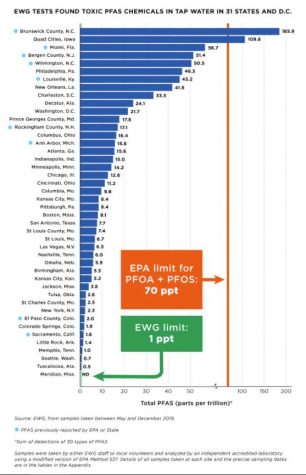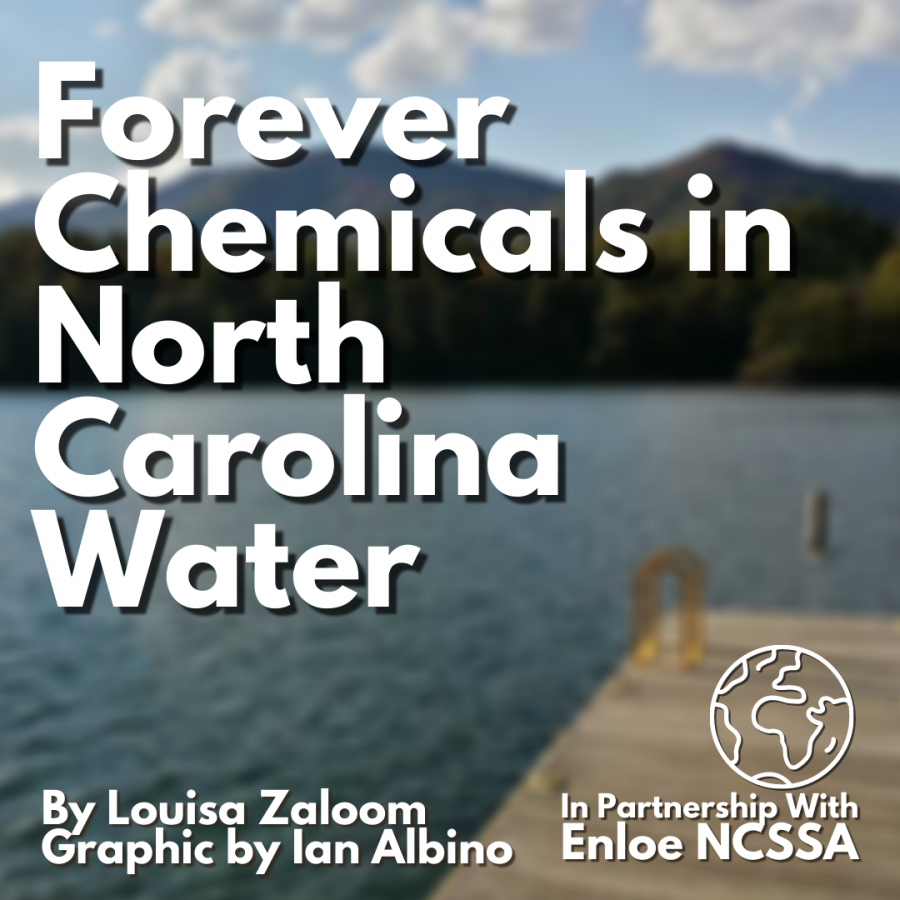Forever Chemicals In North Carolina Water
The safety rules for going on a trip to the beach are pretty standard. Reapply sunscreen, wear a life jacket, and do not drink the tap water that could be detrimental to human health. That last one may sound shocking, and it should. When my family and other North Carolinians found out about the tap water problem on the coast, it was already years after it had begun. We were upset to find out that we had already ingested so much of the water without knowing the issues it had. Then, we had to take measures to not ingest any of it in the future. Now, whenever we go to the beach, we have to bring at least five gallon jugs of water from Raleigh with us for a one weekend stay.
Clean water is one of the most important factors for a livable and prosperous environment. However, according to a 2019 study conducted by the Environmental Working Group, our own Brunswick County on the coast of North Carolina, has the highest PFAS levels in tap water detected in the entire nation.
As outlined by the United States Environmental Protection Agency, “Per- and polyfluoroalkyl substances (PFAS) are a group of synthetic chemicals that have been in use since the 1940s.” The most studied of these chemicals are PFOA and PFOS. Research outlined by the EPA has revealed that exposure to these chemicals can result in tumors in animals, low infant birth weights, and effects on the immune system. They can also reduce the effectiveness of vaccines, cause thyroid hormone disruption, and cause cancer. These high concentrations of them do not belong in our state’s water, or anywhere else.
PFAS are also known as “forever chemicals” because they take a long time to break down in the environment. One such chemical is known as GenX. GenX has been dumped into the Cape Fear River since 1980. A company called Chemours has been disposing of GenX in the river, with no regard for the environment or the people living there. GenX was introduced in 2009 to replace PFOA because of PFOA’s link to cancer and other environmental concerns. However, it was later reported that GenX poses many of the same health and environmental threats.

And the story does not end there. The Intercept reported in 2019 that Chemours was sending GenX waste from the Netherlands to dispose of it in North Carolina. This is because, unlike in the Netherlands, GenX waste in the US is completely unregulated. It is outrageous that companies are able to risk the health of American people and our environment in this manner.
When companies like Chemours get caught polluting the environment with chemicals, they apologize and hope for forgiveness until the next incident. What we need is not reassurance. We need more regulations on PFAS and GenX. We need to get these chemicals cleaned up with some method, such as bioremediation, which is a process where microorganisms naturally found in soil digest contaminants. Many methods to remove the pollutants can be expensive and time consuming, but stopping the pollution at the source is a huge step. Stopping the pollution in its tracks will allow the environment to slowly heal on its own, even without further intervention.
It is imperative for the people of North Carolina that our drinking water is not tainted with PFAS chemicals. There is a serious issue when one of our coastal counties has the most PFAS in their water in the nation. Pollution at the cost of our environment is an ongoing issue, and one that should not be tolerated. Safe tap water should be the last of our concerns when we visit the beach, and demanding stricter regulations and their enforcement is the way to ensure it.
Your donation will support the student journalists of Enloe Magnet High School, allowing us to cover our annual website costs. We are extremely grateful for any contribution, big or small!

















